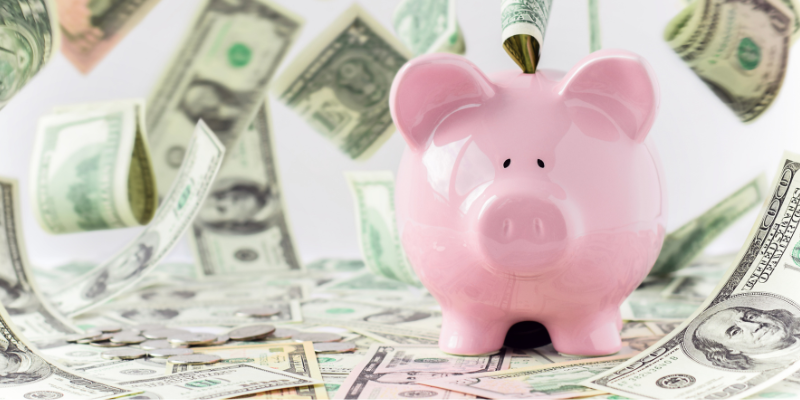
What should you do with an unexpected windfall?
On a Saturday morning in our neighborhood café, my husband mentioned that he’d earned an extra thousand dollars completing some extra work at his job. My 11 year-old son quickly perked up, “you know what I think you should do with the money, Dad?”
“Here it comes,” I thought, “a request for another Lego set or three.” But what he said instead surprised me in its maturity. I told him so, and joked that I’d have to have him help me make some videos for work, and when we got home, he asked me to record him so he could help me.
So how did he do? Well, after taking taxes into consideration, his suggestions for the unexpected windfall boil down to a few basics:
1. Pay off debt. He knows we have a mortgage we pay each month, and also a car loan. If you are carrying any debt with high interest rates, it could be a good choice to pay down the principal if you find extra money in your budget. You’ll pay off the debt faster and pay significantly less money over time if you can wipe out any high interest loans. That might be your mortgage or car payment, but more likely includes things like credit card debt. Either way, if you have high interest debt, paying that off, in part or in full, can put you on stronger financial footing.
2. Put money towards your retirement account or education savings account. In this case, my husband’s bigger paycheck will come directly from his employer. That means that if he chooses to, he can increase his contribution amount toward his 403(b) for this month and put that money directly into his retirement account. It’s easy to change your contribution amount as either a dollar amount or percentage of your pay, and when you get a raise or a bigger than usual paycheck, increasing your retirement contributions can be a great idea. Not every unexpected windfall will be coming in your paycheck, however, so contributing to a retirement account that isn’t linked to your employer (some type of IRA, for example) or an education savings plan (like the 529 plans we have for each of our kids) could also be good options.
3. Make sure you have emergency savings. Things happen! Whether it’s the fridge suddenly deciding that it’s no longer interested in cooling or a flat tire that needs replacing, unexpected expenses are going to pop up. Having an emergency savings account is important for making sure those unanticipated moments don’t have a long-term effect on your financial well-being. Putting some of that extra money aside for the inevitable rainy day will ease your mind now, and will make whatever comes your way in the future easier to manage.
4. If you want to, spend a little on yourself now. Once you’ve made strong financial decisions about most of the extra money, you can treat yourself. No one is saying you have to save every single penny for the future. Once you’ve considered future you, you also get to live in the now and enjoy today too. It doesn’t have to be an either-or, it can be both.
Overall, his advice is pretty strong, especially coming from a middle-schooler! He surprised me with this wisdom, and definitely taught me something too—talk to your kids about expenses, budgeting, debt, etc! Money shouldn’t be a taboo topic, or something that we wait to teach or learn until adulthood. I wasn’t sure that our family conversations mattered much, but clearly, my kiddo is paying more attention than I thought. I think he may have earned a new Lego set after all.

